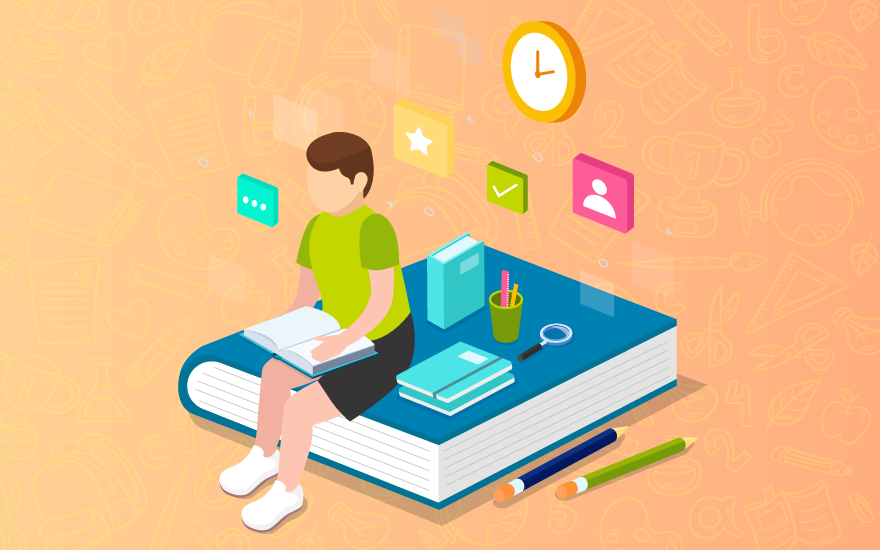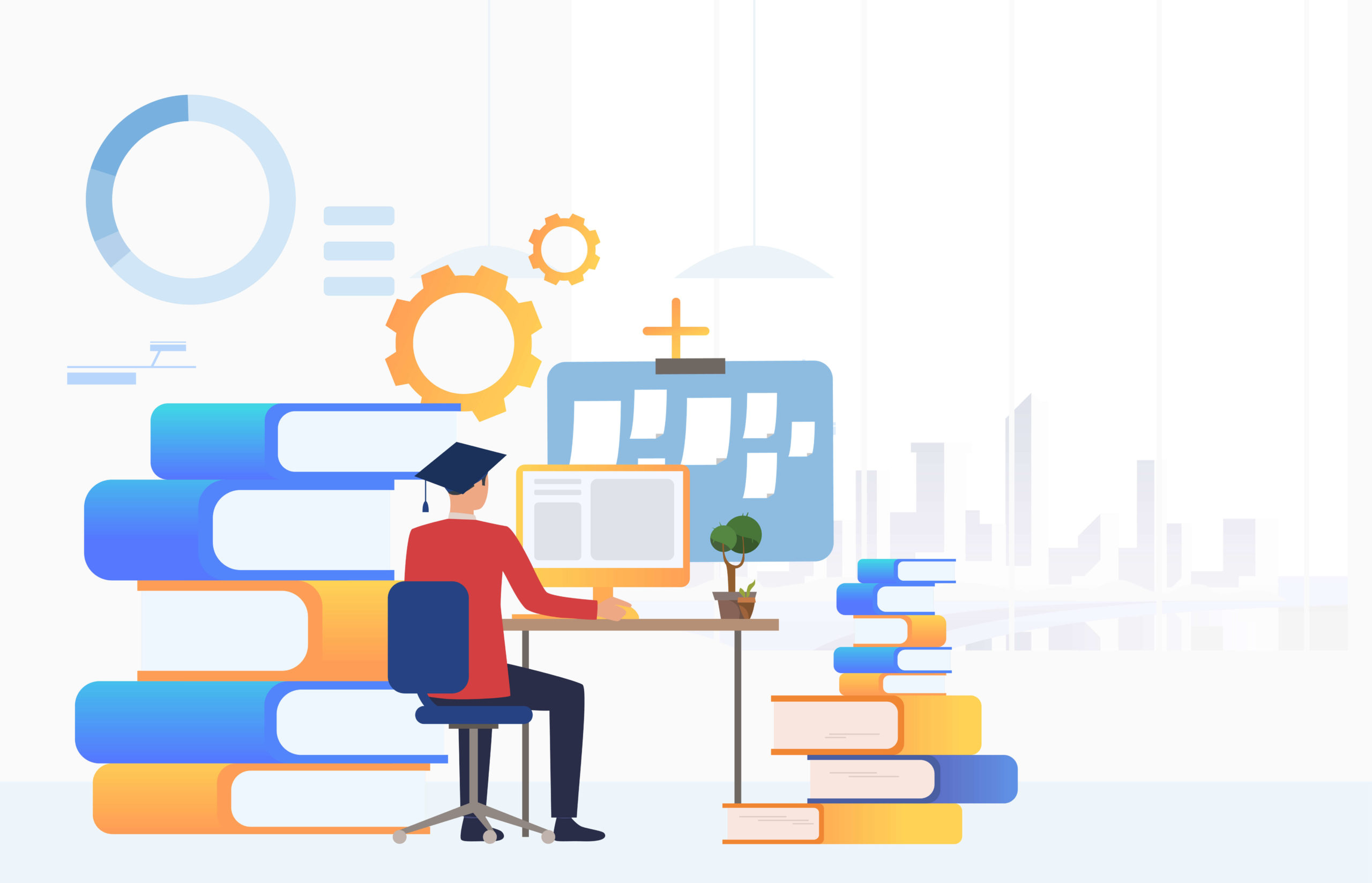
Look the useful study tips to improve your grades
“Before everything else, preparation is the key to success”, quoted the world-famous scientist, Alexander Graham Bell.
That’s right. There’s nothing that leads to successful outcomes than genuine preparation.
As you are approached with final exams, focusing on smart preparation with proven techniques is the key to score better.
So here are some of the useful and scientifically valid study tips to boost your confidence and grades in exams.
ALSO READ: What is Counselling?
Some Useful Study Tips to Boost your Grades
1. Eat healthily; Stay Hydrated
First things first. Eating healthy and drinking enough water is not a study tip per second.
However, this is one of the significant aspects, to begin with.
Consuming highly nutritious food such as fish, nuts, berries, yogurt, veggies, and fruits acts as brain fuel.
This aids improvement in overall cognitive functions by providing energy.
Drinking plenty of water is also important for maintaining high alertness and activity in the brain and body.
2. Begin Early
Starting to prepare early, say at least a week before your exams is a great kick start.
This early start can help you prepare mentally to face your exams.
You will also have enough time to prepare and review your study notes and materials if you begin in advance.
If you are running short of time, you will tend to cram everything at a time and this will reduce your reasoning and memorizing ability.
ALSO READ: When Do You Need Career Counseling?
3. Finding your Sacred Spot
Most of you can’t really study productively in a messed-up room.
Can you? So it’s quite important to figure out a place that best suits your needs.
This could be a library, a study room at home or even a quiet park near your school.
Whatever it may be, choosing a sacred study spot with all your well-equipped things will surely give you the boost and concentration that’s required.
4. Making a Study Plan

Reviewing your study portions and organizing them will help you prepare smarter.
Some of the tasks involved in making a study plan are: Jotting down exam dates, marking them on your table calendar, setting short-term study goals, planning which portions to cover in a day, keeping a countdown, deciding on study materials, allotting time, etc.
ALSO READ: Getting it Right for Your Child with Learning Disability
5. Chunking
The best way to learn something effectively is by chunking.
Rather than cramming a whole portion in 10 hours, it is better to break down the portions and study it as a 30 minutes session 20 times a day.
This learning method is most productive.
Because our brain is designed to receive and encode information when given in short chunks or pieces than a large one-at-a-time piece.
6. Minimize Distractions
This is extremely important than you assume.
Keeping away your phone or switching off that favourite show on TV is indeed a necessity to pay attention to your task at hand.
Identifying such distractions and avoiding them will help you pay more attention to your study material.
Materials that have been learned attentively are more likely to be retained and recalled during exams.
ALSO READ: How to Choose the Right Career?
7. Using Learning Aids
Everybody has a unique style of learning.
But despite that, there are certain strategies that can aid better learning. One amongst this is making flashcards.
Flashcards are small cards which outlines a topic or a term in the most comprehendible manner.
Another strategy is drawing flowcharts and diagrams to explain a topic.
Making short notes while studying is also found to be an effective strategy.
8. Adopting Memory Techniques
The hardest part of preparation is memorizing whatever you have learned.
Nevertheless, there are a number of memory techniques that actually come in handy during exams.
Some of the common techniques are mnemonics– which indicates a rhyme or a phase, or a string of letters, or something else designed to trigger the memory; the Roman room method– associates one’s home and the objects in it with the information to be recalled, etc.
ALSO READ: How to Know if you Have A Learning Disability?
9. Practicing Tests
This is yet another most proven strategy in learning.
Taking up practice tests analogous to your actual exam will expose you to possible errors and difficulties you might face during an exam.
But that’s not the only way.
You can test yourself by asking questions in your head, or by using flashcards or by doing problems, etc.
Such self-testing exercises will help you retain information to a large extent.
10. Maintaining Balance
Balancing your mental and physical health is crucial.
Most of you might be anxious or stressed during exam season and it is important to balance it out.
Getting 6-8 hours of sleep is a necessity.
Taking regular breaks during your study time is also prominent in distressing your mind.
Actively moving your body by taking a walk or playing a sport will also keep your body and mind in balance.
At Wellness Clinic, we are one of India’s best psychology counseling centers. Our team comprises clinical psychologists, counseling psychologists, family therapists, and remedial educators. We are ensured to provide the best mental health services. For more Information do contact us.
Search
Recent Posts
- Discover Emotional Well-Being: Empowering Counselling Services with Clinical Psychologists at Wellness Clinic
- Unlocking Emotional Resilience: Wellness Clinic – Your Trusted Mental Health Haven in Kochi, Calicut, and Manjeri
- Unlocking the Potential of Young Minds: Meet Our Child Psychologist at Wellness Clinic, Manjeri
- Unlocking Emotional Wellness: Wellness Clinic at Manjeri, Malappuram
Categories
- Career Psychology (4)
- Child Psychology (1)
- Common Mental Health Issues (4)
- Couples (1)
- Family and Marital (3)
- General Topics (9)
- Learning disability (1)
- Psychological Wellness (2)
- Uncategorized (16)
